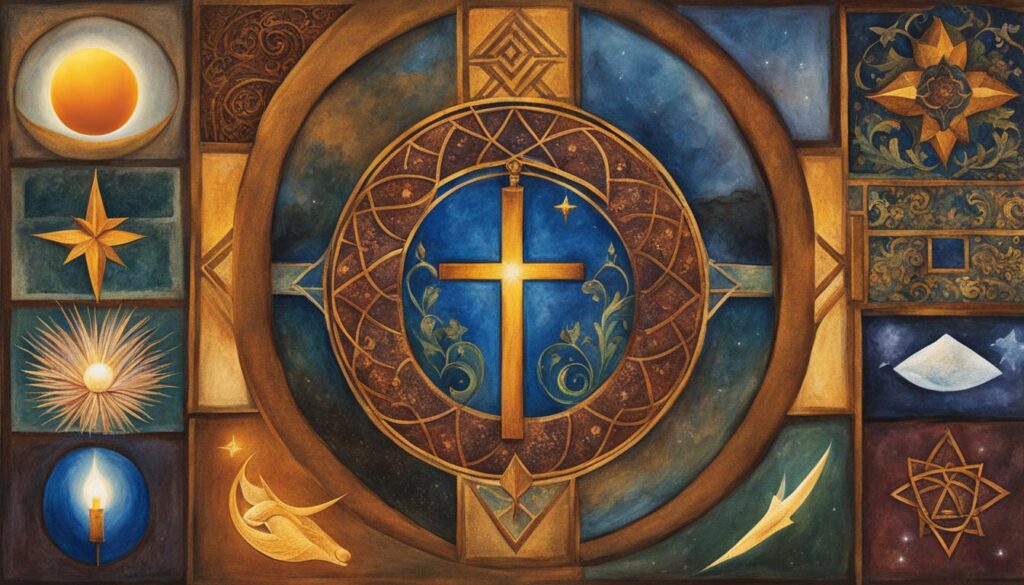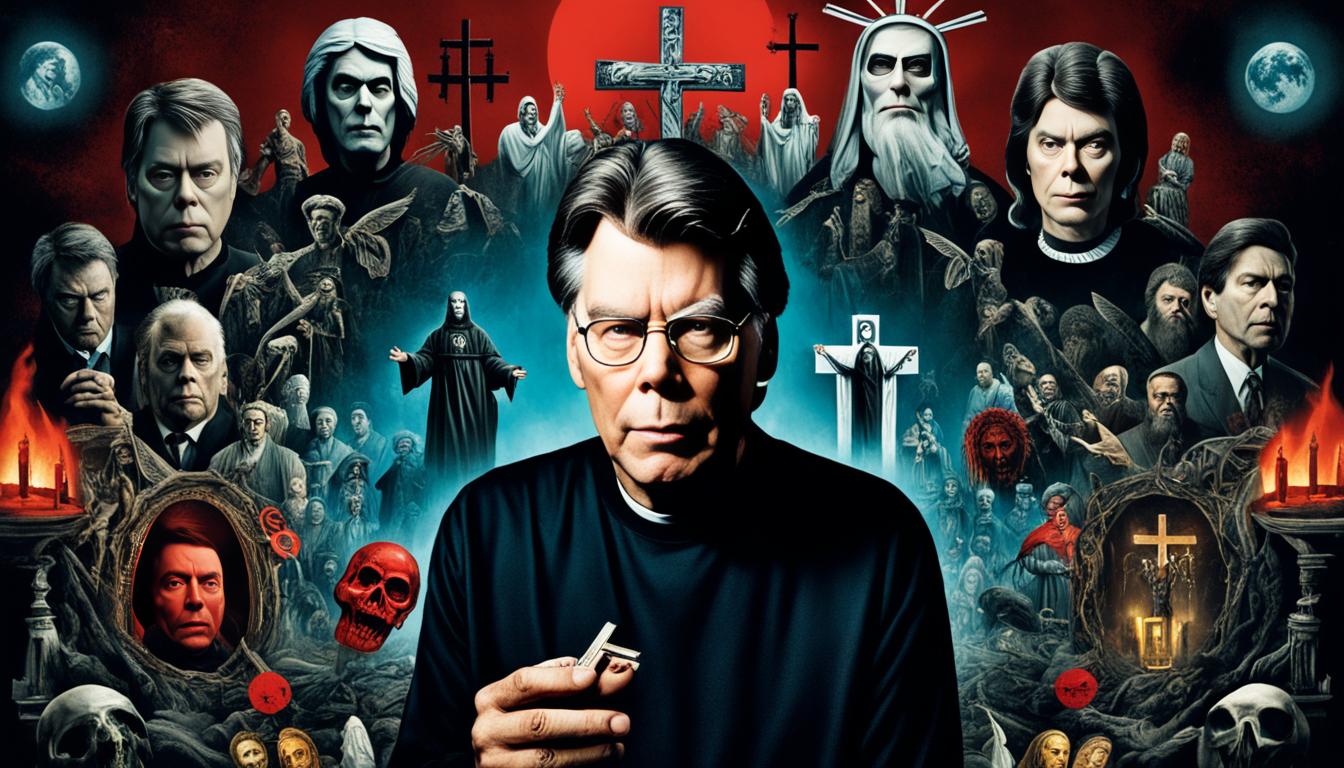Stephen King is a revered writer of horror, suspense, and supernatural fiction. His works have garnered a massive following globally, cementing his position as one of the most prominent authors of our time. However, little is known about King’s personal beliefs, especially concerning Christianity. In this article, we seek to explore Stephen King’s religious inclinations and evaluate whether he identifies as a Christian or if he subscribes to other spiritual beliefs.
Through meticulous research and analysis, we aim to provide insights into King’s beliefs, the impact of his religious background on his writing, recurring themes of Christianity in his works, and reactions to criticisms and controversies surrounding his spiritual stance. Join us in delving into the enigmatic world of Stephen King’s beliefs.
Early Life and Religious Background
Stephen King was born in Portland, Maine in 1947. His mother, Nellie Ruth Pillsbury, was a devout Christian who attended the Free Baptist Church, while his father, Donald Edwin King, was raised Methodist but was not religious.
| Religious Background | Description |
|---|---|
| Stephen King’s Childhood | King’s mother instilled strong Christian values in him from a young age, taking him to church regularly. |
| High School Years | King attended Lisbon High School, where he was exposed to a variety of religious beliefs among his classmates and teachers. He later described himself as a “smart-ass atheist” during this time. |
| College Years | King studied at the University of Maine, where he met his wife, Tabitha, and he continued to identify as an atheist. |
Despite his mother’s influence, King eventually turned away from Christianity and became an agnostic in his teenage years. He later described his religious beliefs as “a work in progress.”
Religious Themes in Stephen King’s Writing
Stephen King is known for incorporating religious themes into his writing, often exploring the intersection between faith, morality, and the supernatural. One of the most well-known works featuring these themes is The Stand, which centers around a post-apocalyptic world where good and evil forces vie for control.
King’s work also often features religious symbolism and imagery. In The Dark Tower series, for example, the protagonist is on a quest to reach the titular tower, which is seen as a representation of salvation. Similarly, in Salem’s Lot, a small town is plagued by vampires who represent sin and corruption.
These motifs serve to underscore the importance of spirituality in King’s work, and many have speculated that they also reflect his own personal beliefs. In an interview with The Paris Review, King stated:
“I choose to believe that God exists, and therefore, I can say ‘God, I can’t do this by myself. Help me not to do it. Help me to avoid that which will lead me into temptation.'”
This statement suggests that King’s faith plays a significant role in his approach to writing and storytelling, and it highlights the authenticity and sincerity of the religious themes present in his works.
Interviews and Statements on Faith
Stephen King is known for his introspective nature and his willingness to speak openly about his personal beliefs. In a 2020 interview with The New York Times, King spoke about his oft-misunderstood faith, stating that he is not a Christian but rather a “reluctant optimist.”
Despite this, some of King’s works, such as The Stand, contain clear Christian themes and imagery. King has acknowledged the influence of his religious upbringing in shaping his writing, stating in an interview with Rolling Stone that “I was brought up in a Methodist church, and I was taught the Ten Commandments and all that. So part of what I do as a writer is to take these religious ideas and try to find where they fit.”
King’s beliefs have also been examined in relation to his battles with addiction and recovery. In his book about writing, On Writing: A Memoir of the Craft, King describes how his faith in a higher power played a role in his overcoming addiction and maintaining sobriety.
Through his interviews and public statements, Stephen King has provided insight into his personal beliefs and how they influence his writing and worldview. It is clear that while he may not identify with a specific religion, aspects of his religious upbringing and spiritual experiences continue to play a significant role in his life and work.
Criticisms and Controversies Surrounding Stephen King’s Beliefs
Stephen King’s religious beliefs have garnered significant attention over the years, with criticisms and controversies surrounding his views. One of the most common criticisms is that King’s writing often includes graphic and violent scenes, which have sparked debates about his moral values and spiritual beliefs. Some religious groups have also criticized the author for his use of supernatural elements, arguing that they promote occult practices and undermine Christian principles.
Despite these criticisms, many fans and scholars have defended King as a talented writer whose work explores complex themes and raises thought-provoking questions. Others have pointed out that King has never claimed to be a spokesperson for any particular religion or ideology, and that his stories often reflect a deep sense of spirituality and morality.

In recent years, controversies surrounding King’s beliefs have been fueled by his outspoken criticism of political figures and social issues. Some critics have accused the author of hypocrisy, arguing that his views are inconsistent with his portrayal of violence and horror in his writing. Others have praised King for using his platform to speak out on important issues and for encouraging his readers to think critically about the world around them.
Despite the debates and controversies surrounding his beliefs, Stephen King remains one of the most influential and widely read authors of our time, with a body of work that has left a significant impact on popular culture and modern literature.
Stephen King’s Exploration of Morality and Good vs. Evil
One of the most prominent themes in Stephen King’s writing is the exploration of morality and the dichotomy of good and evil. King’s works often feature complex characters that blur the lines between right and wrong, making readers question their own moral compass.
In his novel, “The Stand,” King presents a post-apocalyptic world where a small group of survivors is torn between their better nature and the temptation to embrace their darker impulses. This struggle to maintain their moral code in the face of extreme circumstances is a common theme in many of King’s works, including “Misery,” “The Dark Tower” series, and “The Shining.”
King’s interest in morality and ethics is not limited to his fiction, as he has spoken publicly about his own beliefs on these topics. In a 2014 interview with Rolling Stone, King discussed his view that people are capable of both good and evil, stating: “I believe that most people are essentially good, but that they can be led astray by circumstances and by events beyond their control.”
King’s exploration of morality and good vs. evil in his writing can be viewed as an extension of his own personal understanding of faith and spirituality. Through his characters and stories, he presents thought-provoking questions about the true nature of humanity and the forces that shape our choices.
Other Spiritual Influences in Stephen King’s Life
While Stephen King’s personal beliefs have been the subject of much discussion and analysis, it is worth considering other spiritual influences that may have shaped his worldview.
One notable influence in King’s life is his interest in the occult. In an interview with Rolling Stone, he discussed his fascination with the subject, stating, “I’ve always been interested in the occult. I read a lot about it, and I’m fascinated by the whole phenomenon of it.” This interest is reflected in many of his works, particularly in novels such as Salem’s Lot and The Stand.
Additionally, King has expressed admiration for the works of Eastern philosophers such as Lao Tzu and Confucius. He has cited their teachings as having a profound impact on his understanding of morality and the human condition.
Furthermore, King has been vocal about his struggles with substance abuse and addiction, which have undoubtedly had an impact on his spiritual journey. In his memoir On Writing, he describes his recovery as a “spiritual experience,” and many of his works delve into the themes of redemption and personal transformation.

In considering these other spiritual influences in Stephen King’s life, it becomes clear that his beliefs are complex and multifaceted. His exploration of the supernatural, interest in Eastern philosophy, and battles with addiction have all likely played a role in shaping his worldview and the themes present in his writing.
Speculations and Interpretations on Stephen King’s Beliefs
Stephen King’s spiritual beliefs have long been a topic of fascination and debate among scholars, critics, and fans. While King has spoken publicly about his religious views to some extent, many speculate that his writing contains deeper, more complex spiritual themes that may not align with traditional Christian beliefs.
Some interpret King’s work as a commentary on modern society, using horror and supernatural elements to explore morality, ethics, and spiritual identity. Others argue that King’s use of religious imagery and symbolism reflects a personal interest in faith and spirituality, even if his beliefs are difficult to pin down.
One interpretation is that King’s work is informed by his struggles with addiction and redemption, themes that are explored in works such as The Shining and The Dark Tower series. Another theory is that King’s writing is deeply influenced by his experiences growing up in a small Maine town, grappling with issues of class and social inequality.
Ultimately, the true nature of Stephen King’s beliefs remains open to interpretation. While some argue that his work contains a clear religious message, others suggest that King is more interested in using spirituality as a lens through which to explore human nature and the unknown.
Regardless of one’s personal interpretation, it is clear that Stephen King’s work has had a profound impact on the world of literature and beyond. As readers continue to grapple with the complexities and contradictions of his writing, it is certain that the discussion surrounding his beliefs will endure.
Conclusion
In conclusion, our examination of Stephen King’s beliefs has revealed a complex and nuanced understanding of faith and spirituality. While his religious background and recurring religious themes in his writing suggest an affinity for Christianity, King’s public statements on faith and exploration of other spiritual influences suggest a broader perspective.
Furthermore, criticisms and controversies surrounding his beliefs highlight the challenges of defining one’s faith within the public sphere and the need for tolerance and understanding in discussions of spirituality.
Ultimately, Stephen King’s beliefs remain a subject of speculation and interpretation, and it is up to each individual to determine their own conclusions based on the available evidence. Nevertheless, his contributions to literature and popular culture continue to inspire and captivate audiences worldwide.



